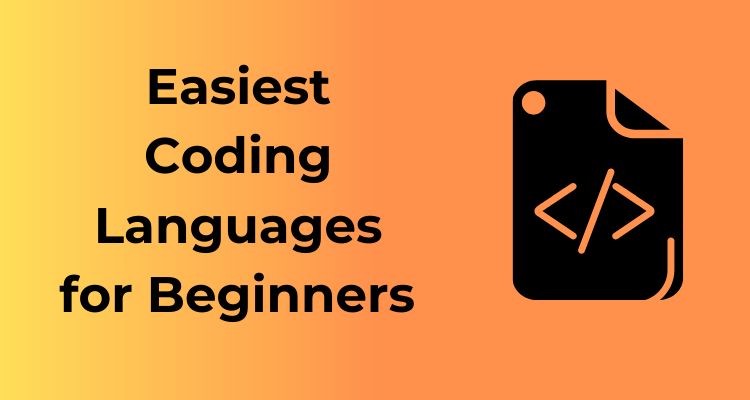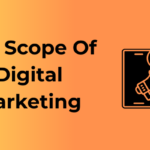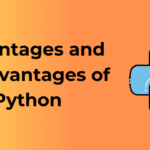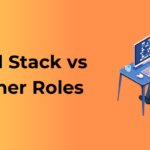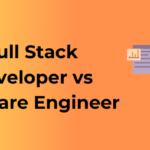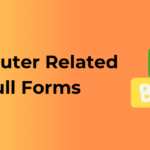So, you’ve decided to dip your toes into the exciting world of coding? Amazing choice! But before you jump in with both feet, let’s talk about something crucial: picking the right coding language. Now, you might wonder—does it really matter where I start? The short answer is: yes, it absolutely does! Choosing the perfect language for your goals can save you time, reduce frustration, and ensure you genuinely enjoy the learning process.
Why Skipping This Step Could Slow You Down
Imagine this: You eagerly start learning a coding language just because someone said it’s ‘the best.’ Then, you quickly realize it feels overly complicated, irrelevant to the type of projects you’re passionate about, or simply not very fun. It’s not you—it’s the language that might not align with your individual goals.
For example, if your dream is to design visually stunning websites, you wouldn’t want to start with something like C++, a language more suited for systems or game development. Or let’s say you’re curious about data science—spending months on JavaScript rather than Python might leave you wondering why coding feels like a mismatch. That’s why narrowing your focus based on interest and purpose is key!
Know Your Goals
The first thing to figure out is why you want to learn coding. Are you exploring it as a new hobby? Hoping to switch careers? Or do you picture yourself launching an innovative app? Knowing the answer will immediately clear the fog, guiding you toward coding languages that align with your aspirations.
- Want to create interactive websites? Look into HTML, CSS, and JavaScript.
- Interested in data, AI, or machine learning? Python is your go-to choice!
- Fascinated by game development? Dive into C#, Unity, or C++.
- Trying to build mobile apps? Swift (iOS) or Kotlin (Android) will be incredibly useful.
Start Small, Think Big
You don’t need to master everything at once. Coding is a marathon, not a sprint. Choosing a language with a relatively gentle learning curve will give you an initial confidence boost. And remember, the skills you pick up in your first language will transfer and help make learning others easier later on. For starters, Python is well-loved because it’s beginner-friendly, with simple syntax that reads almost like English. Plus, it’s super versatile!
Consider Your Learning Style
Some languages have more interactive tutorials and resources, and this could make a huge difference in your journey. If you’re someone who thrives on “doing,” focus on languages with tons of beginner-level projects or coding playgrounds (hello, JavaScript and Python!). If you prefer absorbing concepts before jumping in, pick a language with structured documentation and step-by-step courses, such as Java or C#.
Resources Can Make or Break the Experience
Lastly, take into account the availability of supporting materials. A language like Python, for instance, boasts abundant tutorials, books, and forums. Diving into a niche language early on could feel isolating if you struggle to find help when you hit a wall.
Breaking the Stereotypes: Easy-to-Learn Coding Languages
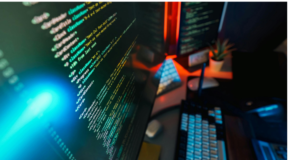
Let’s debunk a common misconception right away: coding isn’t reserved for tech geniuses or math prodigies. If you’ve ever dared to think, “I’m not smart enough to learn programming,” toss that thought out the window. Learning to code is like learning a new language, and guess what? There are plenty of beginner-friendly options that are accessible, fun, and far from intimidating.
Why ‘Easy’ Doesn’t Mean Oversimplified
When we refer to “easy-to-learn” coding languages, we’re talking about languages designed to be user-friendly and intuitive, not lacking in potential. These languages are like training wheels on a bike—they help you build confidence and skills to explore deeply, but they’re also powerful in real-world scenarios. Many professionals rely on these very same languages every day.
Here’s the truth: Coding is for anyone willing to try. It doesn’t matter if you’re completely new to tech or switching careers from a creative background. Easy-to-learn coding languages cater to different learning paces, offering simple syntax and clear functionality. Let’s dive into why these languages smash stereotypes about coding being overly complex.
Features That Make a Language Beginner-Friendly
So what makes some languages “easier”? The secret lies in a few key factors:
- Readable Syntax: For a beginner, code that reads more like plain English is less daunting. Languages like Python break down barriers this way.
- Large Support Communities: Google an error or question in a beginner-friendly language, and you’re likely to get tons of helpful answers.
- Minimal Setup: Some languages don’t need complex installations or environments. You can start coding in minutes.
- Interactive Learning Options: Languages like JavaScript lend themselves to building fun, instant feedback projects like interactive websites.
Examples of Stereotype-Breaking Languages
You might be asking, “But which languages are we talking about?” These are a few that often surprise beginners with their accessibility:
- Python: A favorite for its simplicity and versatility. Its syntax is clean and beginner-friendly yet incredibly powerful for tasks like web development, data analysis, and even AI projects.
- JavaScript: Don’t let the “script” part intimidate you. It’s fantastic for creating dynamic websites—maybe even your first portfolio!
- Scratch: Perfect for young learners or absolute beginners, Scratch lets you drag and drop code blocks instead of typing them. It’s a gentle introduction to concepts like loops and variables.
- Ruby: Known as “a programmer’s best friend,” this language is both elegant and a joy to work with. Beginners love it because it doesn’t overwhelm with unnecessary complexities.
Why It’s Worth Starting Simple
Don’t underestimate the value of starting with an approachable language. Tackling something “super complex” right away might make you feel stuck, frustrated, or even ready to give up. Chosen wisely, a beginner-friendly language can help you quickly grasp core programming concepts like conditionals, loops, and functions—skills you’ll carry forward, no matter which coding path you pursue in the future.
Remember, launching your coding journey isn’t about proving your intellectual might. It’s about embracing a new way to solve problems creatively, one line of code at a time. So, set aside those doubts, pick an easy-to-learn language, and step confidently into the world of coding—there’s no stereotype you can’t smash along the way!
Top Beginner-Friendly Languages and Their Best Use Cases
Starting your coding journey can feel overwhelming, especially with so many programming languages out there. But don’t worry! You’re in the right place to figure out which beginner-friendly languages will serve as perfect stepping stones, depending on your goals. Let’s dive into some easy-to-learn programming languages, and I’ll show you how you can use them to create meaningful projects and make the most of your early coding experience.
1. Python: The All-Rounder
Let’s begin with Python, the superstar of beginner coding languages. Dubbed as “programming that humans can understand,” Python is known for its simple and readable syntax. Think of it as writing in English—almost!
- Best Use Cases: Web development, data analysis, automation, machine learning, and even game development.
- Why It’s Great for Beginners: Python has a gentle learning curve, plus an abundance of libraries that can help you explore various fields without doing too much heavy lifting.
Start small by automating repetitive tasks or creating a simple calculator. Once you’re comfortable, you can dive deeper into exciting areas like artificial intelligence or building engaging web applications.
2. JavaScript: The Browser Boss
If you’re looking to bring websites to life, JavaScript should be on your radar. Most websites on the internet rely on JavaScript to make their pages interactive and user-friendly. This makes it an excellent choice if you’re passionate about web development.
- Best Use Cases: Frontend development for websites, interactive forms, dynamic graphics, games, and even backend development using Node.js.
- Why It’s Great for Beginners: You don’t need any special tools to start coding—just open your browser and start experimenting in its developer tools. The instant feedback is super motivating for new learners!
Once you grasp the basics, you can level up by creating simple games like “Rock, Paper, Scissors” or adding cool effects to a webpage.
3. Scratch: Coding As Play
Maybe you’re completely new to coding, or you love visuals—either way, Scratch is fantastic. This block-based coding language is especially popular among younger learners but is great for anyone who wants a fun, non-intimidating way to understand coding fundamentals.
- Best Use Cases: Basic animations, simple games, and interactive stories.
- Why It’s Great for Beginners: Scratch uses a drag-and-drop interface, eliminating the need for complicated syntax. Plus, it encourages creativity from the get-go.
Build a small interactive story or create a game with moving characters and sounds—100% beginner-friendly and 100% fun.
4. Ruby: The Beginner’s Gem
Ruby emphasizes ease of use, which is why it’s often recommended to newcomers who prefer simplicity in coding. What’s more, with Ruby on Rails, you can create scalable and professional-grade web apps.
- Best Use Cases: Backend web development, scripting, and even prototyping your next big idea.
- Why It’s Great for Beginners: Ruby was designed to be intuitive, aiming to make programming a pleasant experience.
While practicing Ruby, you can work on creating small web apps or automating basic workflows that save you time.
5. SQL: The Database Wizard
SQL, or “Structured Query Language,” focuses specifically on databases. It’s perfect if you’re curious about data or plan to work on data-driven projects.
- Best Use Cases: Storing and retrieving data from databases, analyzing datasets, and powering backend architectures.
- Why It’s Great for Beginners: SQL doesn’t require long, complex code. You write simple commands to retrieve exactly the information you need.
Practice by building a small database for, say, your friends’ favorite movies or organizing your personal book collection. You’ll be amazed by how much you can do with just a few lines of SQL.
From Syntax to Projects: Hands-On Learning Recommendations
So, you’ve decided to dive into the world of coding—congrats! One of the most exciting parts of this journey is that you’re not just stuck staring at syntax all day. Nope, that’s not how we roll! The secret sauce in learning any coding language is getting hands-on. Let’s explore some approachable and fun ways to level up your coding game.
1. Start Small but Meaningful
It’s super tempting to jump into creating the next billion-dollar app right away. But trust me, starting with bite-sized projects will save you loads of frustration. For instance:
- HTML & CSS: Design a personal webpage or portfolio. Nothing fancy—just a space to showcase your growing skills.
- Python: Create a program that generates a random password or calculates your weekly expenses.
- JavaScript: Try building a simple to-do list app where you can add or remove your tasks for the day.
Each of these small victories will build your confidence. Plus, these little projects always look cool in a portfolio when potential employers are peeking through.
2. Get Hands-On with Online Coding Challenges
If you’re a competitive spirit or just like solving puzzles, coding challenge platforms will feel like playtime. Websites like Codecademy, HackerRank, or freeCodeCamp offer structured exercises tailored to beginners. These challenges often combine syntax drills with practical problem-solving, so you’re sharpening your skills while staying engaged. Win-win!
3. Build Projects That Excite You
Here’s a nugget of wisdom: you’ll learn faster when you’re working on something you’re passionate about. Ask yourself:
- What problem would I love to solve?
- What hobbies can I turn into coding challenges? (e.g., track your workouts or budget in an app)
- What inspires me to stay creative?
Your passion fuels your persistence. Always.
4. Partner Up—Two Minds Are Better Than One
If you’re feeling a little stuck or overwhelmed, why not grab a buddy to code with? Pair programming is *the best*. You’ll troubleshoot bugs together, bounce ideas back and forth, and learn collaborative coding practices that are super helpful in the real tech world.
Don’t have a coding pal? Don’t sweat it. Many beginner communities (like on Discord or Reddit) host virtual meetups where you can partner up. You’ll be surprised how much you can learn from just watching someone else code!
5. Push Your Code Into the Real World
Once you’ve built something decent, don’t let it sit on your computer collecting digital dust. Get comfortable with tools like GitHub to upload and share your projects. By doing so, you’ll learn version control, an essential skill in professional coding environments, and showcase your work to others.
It’s a bit intimidating at first, but sharing your projects online (and getting feedback) makes you a stronger coder. Bonus: It creates a public record of your progress—look back later and be amazed at how far you’ve come!
6. Mix Learning With Fun
Lastly, let’s make coding as fun as it can be. Try coding games like CodeCombat or apps like Grasshopper to inject a little play into your routine. Learning doesn’t have to look like a textbook all the time.
Community Support: The Importance of Developer Forums for Starters
So, you’ve picked a coding language, started learning the basics, and even written your very first program—congratulations! But, let’s be real: learning to code can be *challenging*. You might face roadblocks, get stuck on bugs, or feel completely overwhelmed, and that’s absolutely okay. The key to navigating these challenges? *Community support.* Let’s talk about why forums and developer communities are your secret weapons on this learning journey.
What Are Developer Forums?
Developer forums are like the watering holes of the coding world, where programmers of all levels gather to share knowledge, solve problems, and, sometimes, just vent about that one bug they couldn’t solve for hours. Think of them as the online equivalent of a study group—but without the awkward silences.
- Stack Overflow: One of the most well-known forums, Stack Overflow is a treasure trove of coding advice. Have a question about why your program isn’t running? Odds are, someone has already asked (and answered) it here.
- Reddit: Subreddits like r/learnprogramming are beginner-friendly spaces where learners share tips, resources, and even memes to make the journey less lonely.
- Discord and Slack Communities: Many programming languages (like Python or JavaScript) have official or unofficial chat groups where you can get real-time help from fellow learners and seasoned developers alike.
Why Community Support Is Crucial
1. There’s No Such Thing as a Silly Question
When you’re starting out, it’s easy to think your questions sound “dumb,” but here’s the thing: Every developer, from interns to lead architects, started somewhere. Need help debugging? Confused about syntax? Forums encourage asking and learning without judgment. Often, someone else has had the exact same question before.
2. You Learn Faster Together
Forums and communities introduce you to varied perspectives. One person might solve a problem in a way you hadn’t considered before, or someone might share a hack to simplify your code—it’s collaborative learning at its best!
3. Stay Motivated
Motivation dips are super common for beginners. But joining a group or consistently browsing forums keeps the spark alive. You’ll see success stories, others sharing their wins, and even tales of failing forward. These bits of encouragement can be the push you need to keep going.
Don’t Just Lurk… Contribute!
It’s tempting to stay silent and just read the advice given to others, but don’t hesitate to participate. Even as a beginner, you can contribute by asking questions, sharing your learning experience, or eventually helping someone with a problem you’ve already solved. Active engagement helps you retain knowledge and feel more connected to the community.
Tips for Using Forums Effectively
- Search Before Asking: Check if your question has already been answered. This avoids clutter and helps you find what you need, faster.
- Be Specific: When posting a question, include details—your goal, the issue you’re facing, and the code snippet if applicable. Clear questions lead to quality answers!
- Acknowledge Help: If someone’s response helps you, thank them or upvote their answer. Positive interaction encourages more people to help others.
The Heart of the Coding Journey Lies in Community
The solo grind is important—you’ll need to practice, experiment, and build projects on your own. But no one makes it alone in this field. Leverage forums, chat groups, and online communities as your lifeline. They’re packed with people just like you—or people who remember what it’s like to be you—and they’re ready to help. Plus, who knows? You might even make some lifelong connections or mentors along the way.
So, dive in, ask questions, and join conversations. Coding isn’t just about writing commands; it’s about becoming part of a global network of creators. And honestly? The support and camaraderie you’ll find might just make learning to code the most rewarding journey of your life!
Common Challenges Beginners Face and How to Overcome Them

So, you’ve decided to dive into coding—congratulations! It’s an exciting journey, but let’s be honest; learning to code comes with its fair share of challenges. Don’t worry though, every coder faces these obstacles. In fact, overcoming them is what makes you a better programmer. Let’s break down some common hurdles and talk about how to tackle them like a pro.
1. The Fear of Failure
Does your code constantly throw errors? Do you feel frustrated every time you hit “Run” and don’t get the results you expect? Welcome to the club!
How to overcome it: Understand that mistakes are part of the learning process. Errors actually help you learn more effectively. Instead of feeling defeated, treat each bug as a puzzle to solve. Break your code into smaller pieces to isolate the problem and search online for solutions. Often, someone has already dealt with the same issue!
2. Understanding Complex Syntax
Programming languages can look like a weird mashup of gibberish at first. You might feel overwhelmed when trying to figure out a language’s syntax.
How to overcome it: Start small. Pick a beginner-friendly language like Python, which has simpler syntax. Practice writing short snippets of code and refer to online tutorials or cheat sheets. Over time, the structure and rules of coding will begin to make sense. Remember, even experienced developers don’t memorize everything—they Google often!
3. Impatience with Progress
Many beginners quit coding because they feel like it takes too long to “get good.” Building your first website or creating a functional app seems miles away.
How to overcome it: Take baby steps. Celebrate small wins like printing your name in a program or creating your first loop. Try hands-on projects that align with your interests, as they are more rewarding and fun. Consistency beats speed—practice coding every day, even if it’s just for 30 minutes.
4. Information Overload
Let’s be real; the internet is full of tutorials, courses, and coding podcasts. It’s easy to feel lost in the sea of resources.
How to overcome it: Choose one resource to start with, rather than switching between multiple platforms. Platforms like Codecademy or freeCodeCamp are beginner-friendly and offer structured paths. Also, don’t try to learn everything at once. Focus on foundational skills before diving into advanced topics.
5. The Solitude of Learning
Coding can sometimes feel like an isolating experience, especially when you’re stuck on a problem for hours.
How to overcome it: Join coding communities or forums. Platforms like GitHub, Stack Overflow, and even Reddit’s programming subreddits are fantastic for connecting with other learners. Ask questions, share your victories, and learn from the experiences of others. Remember, “every coder was once a beginner.” Knowing you’re not alone can make all the difference.
6. Burnout from Overloading Yourself
Many beginners try to push through hours of coding without breaks, thinking it’s the only way to improve. Spoiler: it’s not.
How to overcome it: Balance is key. Schedule breaks, keep your goals realistic, and don’t hesitate to step away when you’re feeling stuck. Sometimes, a refreshed mind can solve a bug in minutes after hours of frustration.
Future-Ready Skills: Preparing for the Next Step After Basics
Alright, so you’ve dipped your toes into coding, learned a beginner-friendly language, and built a few fun projects. First of all, congrats—getting started is often the hardest step! But now you might be wondering: “What’s next? How do I keep this momentum going?” Don’t worry—I’ve got you covered. Let’s talk about how you can prepare for the exciting journey ahead and set yourself up for success as you transition from beginner to confident coder.
1. Understanding the “Why” Behind the Next Step
Before diving deeper into coding, it’s important to take a step back and reflect: why do you want to continue learning? Whether it’s to land your dream job in tech, build your own app, or just gain a new superpower, having clarity about your goals will help you chart a meaningful course forward.
2. Leveling Up Your Skill Set
When you’re ready to move beyond the basics, here’s what you should focus on next:
- Broaden Your Language Knowledge: Let’s say you started with Python because it’s beginner-friendly. Maybe now is the time to learn about frameworks like Django for web development or explore another language like JavaScript for more interactive projects.
- Understand Algorithms and Data Structures: Sure, the term might sound intimidating, but trust me, learning these core concepts will make you a problem-solving ninja. Start small—learn about arrays, loops, and recursion step-by-step.
- Get Comfortable with Debugging: No matter how experienced you are, debugging is an essential skill. Use tools like a debugger in your IDE or simply practice troubleshooting your code logically. Yes, frustration is part of the game; embrace it!
3. Build Real-World Projects
One of the best ways to prepare for the next step is by working on real-world projects. Not only will this reinforce what you’ve already learned, but it’ll also teach you completely new skills.
- Start Small: Create a to-do app, a weather app, or a personal portfolio. These projects may sound simple, but they teach fundamental concepts like API integration, front-end design, and user interactivity.
- Participate in Open Source: Contribute to open-source projects on platforms like GitHub. It’s an amazing way to practice collaboration and learn how larger codebases are structured—plus, it looks great on your portfolio!
4. Gain Exposure to Version Control Systems
If you haven’t already been introduced to Git, now is the time to learn it. Git is a tool developers use to manage changes in their code. Knowing how to use Git and platforms like GitHub or GitLab is practically a must for any coding-related career.
5. Embrace Continuous Learning
The tech world changes quickly, so the only way to stay ahead is by never stopping your learning journey. Stay curious, take online courses, read relevant blogs, and follow seasoned developers on platforms like Twitter or LinkedIn.
6. Networking and Joining Communities
Part of preparing for the next step is surrounding yourself with like-minded individuals. Join meetups, participate in hackathons, or attend coding boot camps. Networking not only builds connections but also provides inspiration and mentorship opportunities.
7. Celebrate Your Progress
Lastly, don’t forget to celebrate how far you’ve come. Learning to code isn’t easy, and every step you take, no matter how small, is part of a bigger journey. Treat yourself to something nice—you’ve earned it!
So there you have it—your roadmap for stepping into the future of coding. Remember, learning to code is an adventure, full of twists, turns, and moments of victory. Keep experimenting, stay curious, and above all, have fun coding!

